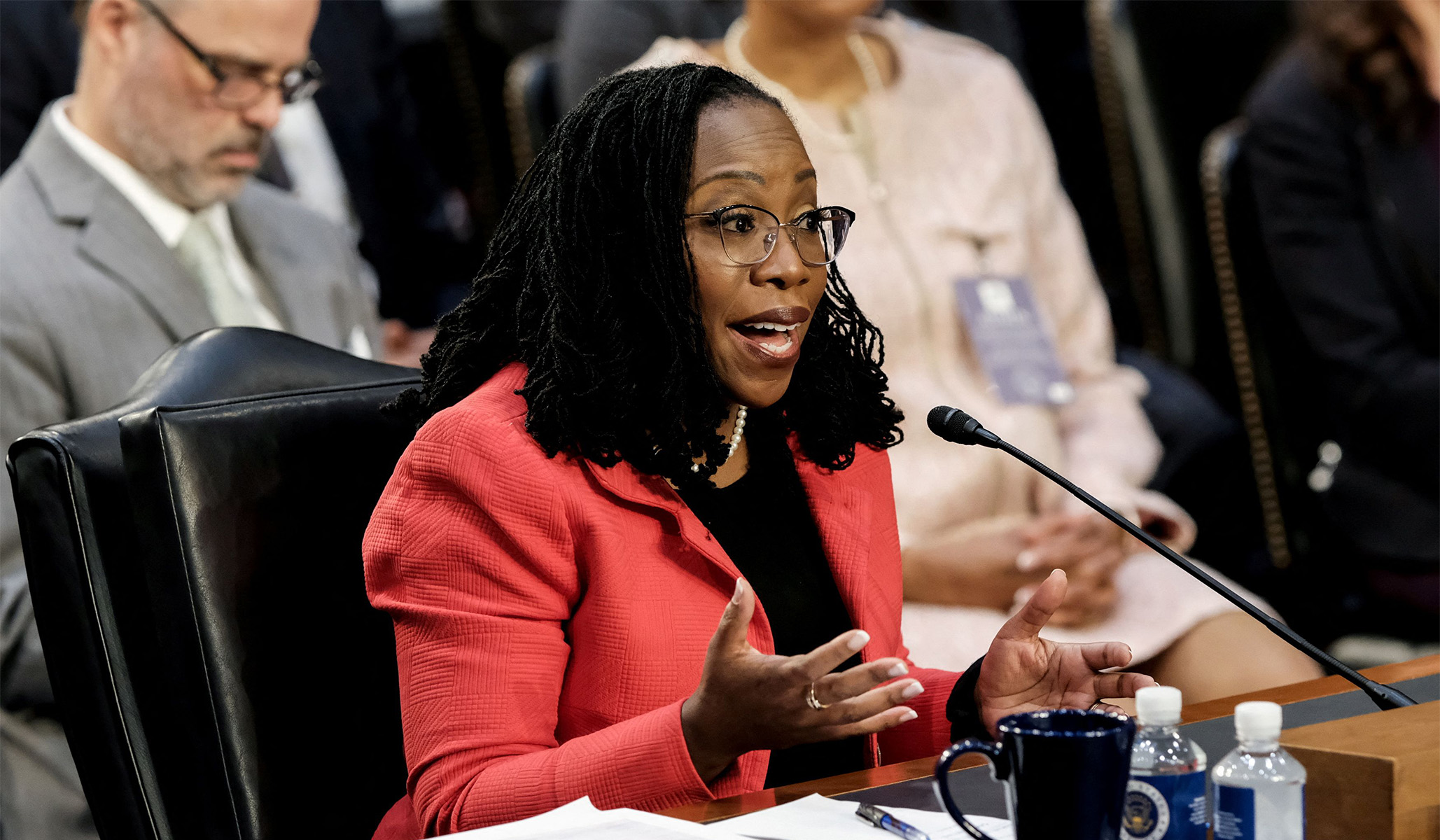I’m very surprised that Judge Ketanji Brown Jackson answered Senator Lindsey Graham’s question about whether we are still at war — yes, she said — and that she elaborated that the post-9/11 AUMF (Congress’s 2001 Authorization of the Use of Military Force) is still in effect. It is entirely conceivable that this issue will come up before the Supreme Court.
This is question of whether we are at war undergirded the exchanges between Senator Graham and Judge Jackson regarding the detainees still held at Guantanamo Bay. Some of the context of this was a variety of pro-detainee positions Jackson took as a litigator representing the enemy combatants. The main issue, though, was the basis for detaining the combatants. The judge and the senator were talking past each other a bit: Jackson was making the point that positions she took as a litigator were not necessarily her personal positions and would not guide her decision-making if the underlying questions came before her as a judge; Graham was making the point that he wants the detainees held at Gitmo until they die. The assumption of the exchanges, however, was that these matters arise because a war is going on.
But is it? I’ve pointed out recently that President Biden speaks as if the war is over. He has explicitly taken credit for ending the war in Afghanistan, in connection with which many of the detainees were apprehended. It is a critical point because, as Graham and Jackson agreed (but did not dwell on), the authority for detaining enemy combatants is dependent on there being an ongoing war. Graham took Jackson to task for what he portrayed as her argument, as a litigator representing detainees, that they should be tried or released. But it is a fact that, if there is no war ongoing, the laws of war would call for the detainees to be tried or released.
Jackson may have been wrong to argue that detainees should be tried or released regardless of whether there is a war. But Graham is wrong to suggest that the dispositive issue is whether, if released, the jihadists would endanger Americans — as have other released jihadists who, as the senator pointed out, have gone back to the jihad. The dispositive issue is whether we are at war. If we are not at war, then there is no legal authority to continue holding combatant detainees without trial.
This is why many of us have argued for many years that the AUMF has to be revisited and clarified. It is Congress’s obligation to do that. If lawmakers continue to punt, it is inevitably going to fall to the courts to weigh in. Eventually, someone in a position of authority is going to have to decide whether our nation is at war, to define the confines of whatever war there is, and to identify the enemy.
